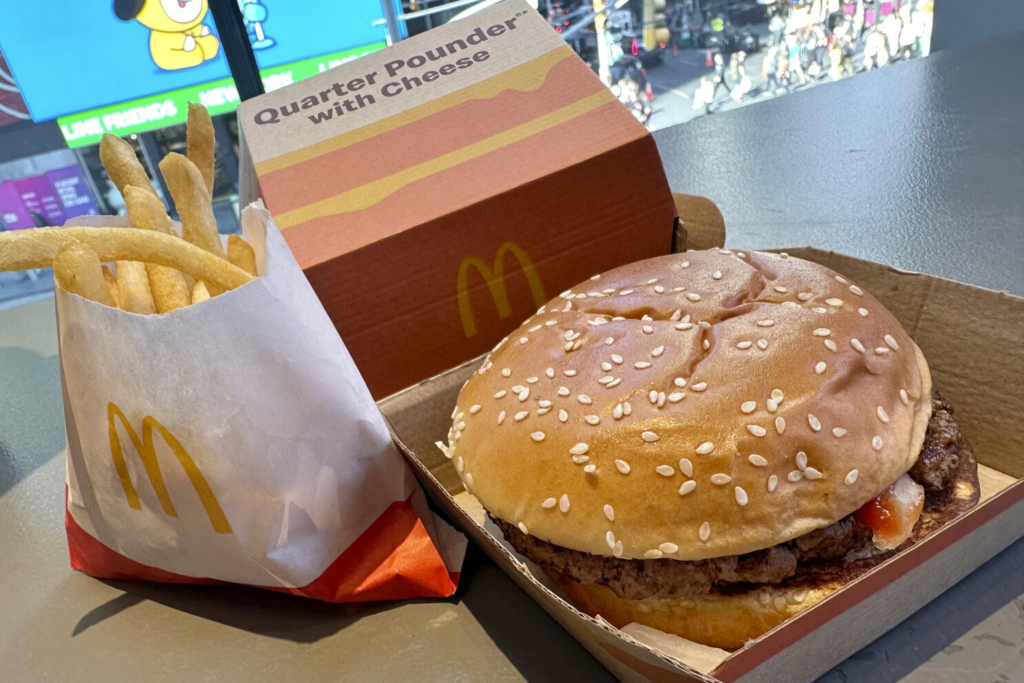In a recent tragic case, a 15-year-old from Colorado is battling severe health complications after an E. coli linked to McDonald’s Quarter Pounders.
The outbreak, which has spread across 13 states, has raised urgent questions about food safety, the risks associated with E. coli, and the steps that companies and consumers can take to mitigate these dangers. This article delves into the details of the teen’s story, the ongoing impact of the outbreak, and essential information on E. coli symptoms.
A Teen’s Journey from Healthy to Hospitalized
Kamberlyn Bowler, a high school athlete from Grand Junction, Colorado, became gravely ill following her consumption of McDonald’s Quarter Pounders, which were recently linked to a significant E. coli outbreak. Kamberlyn enjoyed the popular Quarter Pounder with cheese and extra pickles, but shortly afterward began experiencing flu-like symptoms.
These included fever, intense stomach pain, vomiting, and eventually, bloody diarrhea. As her symptoms worsened, Kamberlyn’s family sought medical assistance, leading to her diagnosis with kidney failure from a rare and serious complication of E. coli infection known as hemolytic uremic syndrome (HUS).
Read : McDonald’s says onions from Taylor Farms linked to E. coli outbreak
Despite the doctors’ efforts, Kamberlyn’s kidneys deteriorated rapidly. She has since undergone multiple rounds of dialysis to support her kidneys, with the possibility of long-term damage looming large. The teen’s mother, Brittany Randall, shared that Kamberlyn had no underlying health issues prior to the infection. ]
Read : McDonald’s Worker Seen Drying a Dirty Mop Above the French Fry in Australia
A bright, active teenager, Kamberlyn was forced to put her life on hold, missing school events and even the last few games of her high school softball season. The experience has left Kamberlyn’s family and community stunned, highlighting the devastating impact foodborne illnesses can have on healthy individuals.
E. coli Linked to McDonald’s Quarter Pounders and Broader Outbreak Response
The Centers for Disease Control and Prevention (CDC) confirmed the E. coli outbreak was linked to the onions used in McDonald’s Quarter Pounders in 13 states. With one death, two hospitalizations, and numerous reported illnesses, the investigation revealed that the likely source was slivered yellow onions provided by the distributor Taylor Farms.
To prevent further infections, McDonald’s issued a press release stating that it had temporarily stopped using onions from Taylor Farms, and approximately 900 McDonald’s locations removed Quarter Pounders from their menus. While the sandwich has since returned to some menus, it is being offered without onions as a precaution.
The nationwide outbreak has sparked outrage and raised serious concerns over food safety regulations in large fast-food chains. Ron Simon, the attorney representing Kamberlyn and other affected individuals, has already filed multiple lawsuits against McDonald’s.

He reports that calls continue to come in, as the outbreak may have affected far more than the initially reported 75 cases. Simon emphasizes that companies like McDonald’s have a responsibility to ensure customer safety, and he plans to seek justice for those impacted by the contaminated food items.
McDonald’s President Joe Erlinger issued a formal apology, acknowledging the gravity of the outbreak and assuring customers that the company is committed to restoring trust.
However, for families like Kamberlyn’s, the effects of this outbreak go far beyond apologies and assurances, as they grapple with life-changing consequences. This incident serves as a stark reminder of the importance of robust food safety protocols at every level of food production and distribution.
Understanding E. coli: Symptoms and Preventative Measures
E. coli, short for Escherichia coli, is a bacterial infection typically transmitted through contaminated food or water. While many strains of E. coli are harmless, certain types, particularly those producing Shiga toxin, can cause severe illness. The CDC reports that symptoms of a severe E. coli infection include diarrhea, abdominal cramps, and fever.
If left untreated, E. coli can lead to complications like hemolytic uremic syndrome (HUS), a condition that attacks the kidneys and can result in kidney failure. In Kamberlyn’s case, her symptoms progressed quickly, requiring prompt medical intervention to manage her condition.

Anyone experiencing symptoms such as diarrhea (especially if bloody), high fever, vomiting, or signs of dehydration (such as reduced urination and dizziness) should seek medical attention immediately. To reduce the risk of E. coli infection, consumers are advised to thoroughly wash produce, cook meat to safe internal temperatures, avoid cross-contamination in the kitchen, and maintain good personal hygiene.
Additionally, restaurants and food distributors play a critical role in upholding safety standards, as contaminated food at the distribution or preparation stage can affect vast numbers of people, as seen in this recent outbreak.
The outbreak linked to McDonald’s Quarter Pounders serves as a reminder of the potential consequences of foodborne pathogens and underscores the need for continued vigilance, both in personal hygiene and in the standards upheld by food distributors and retailers.
Kamberlyn’s case is one among many, and her journey highlights the importance of taking E. coli symptoms seriously and recognizing the dangers posed by seemingly routine food items.

